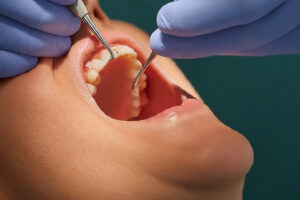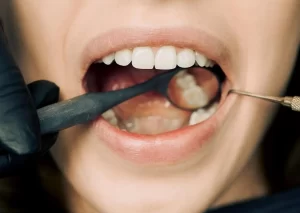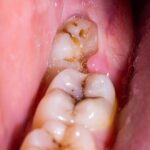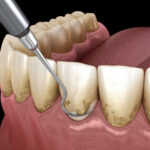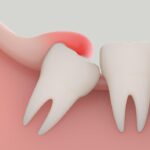How To Get Dental Insurance without a Job

Key Takeaways:
- Evaluate your dental needs and financial situation before choosing a dental insurance plan.
- Explore government programs like Medicaid and CHIP for potential coverage.
- Consider COBRA for temporary continuation of employer-provided insurance.
- Investigate individual dental insurance plans available directly from insurers.
- Utilize the Special Enrollment Period triggered by job loss to explore Marketplace plans, potentially subsidized under the ARPA.
- Look into dental discount plans for savings on services.
- Utilize HSAs or FSAs for dental expenses with tax benefits.
- Seek affordable care at dental schools and community health centers.
Dental health, often overlooked, is important for your overall well-being, with untreated dental issues leading to serious health complications.
The cost of dental care can be prohibitive, especially without the cushion of employer-provided insurance.
This article aims to guide you through the maze of options available for securing dental insurance or dental care services without traditional employment.
From government programs and independent insurance plans to dental discount programs and community health centers, we explore a variety of avenues available to those seeking dental care without job-based insurance coverage.
Whether you’re in between jobs, freelancing, or navigating a career transition, this article will provide valuable insights into maintaining your dental health without breaking the bank.
Table of Contents
What to do if you are unemployed and need a dental insurance plan
Being unemployed and in need of dental insurance can feel like a daunting situation, but there are several avenues you can explore to ensure you maintain your dental health without compromising your financial stability.
Here’s a guide on what to do if you find yourself unemployed and in need of a dental insurance plan:
1. Evaluate Your Current Situation
First, assess your immediate dental needs and your financial situation. Understanding whether you need immediate dental care or if you’re planning for future needs can help determine the best approach for finding coverage.
2. Explore Government Programs
- Medicaid: In many states, Medicaid provides dental benefits to adults. Eligibility and the extent of coverage vary by state, so check your state’s Medicaid program to see if you qualify.
- Children’s Health Insurance Program (CHIP): If you have children, they might be eligible for dental coverage under CHIP, even if you do not qualify for Medicaid.
3. Consider COBRA
If you’ve recently lost your job and had dental insurance through your employer, the Consolidated Omnibus Budget Reconciliation Act (COBRA) allows you to keep your insurance for a limited time. Be aware, though, that you’ll have to pay the full premium, which can be costly.
4. Look into Individual Dental Insurance Plans
There are many individual dental insurance plans available that you can purchase directly from insurance providers. These plans vary in coverage, deductibles, and premiums, so shop around to find one that fits your needs and budget.
5. Check Out Dental Discount Plans
Dental discount plans are not insurance but can offer significant savings on dental services for a yearly membership fee. These plans negotiate discounted rates with dental providers, which can be a cost-effective option if you need care.
6. Use Health Savings Accounts (HSAs) or Flexible Spending Accounts (FSAs)
If you have an HSA or FSA, you can use these funds to pay for dental care. These accounts can offer tax advantages and help manage out-of-pocket expenses.
7. Seek Care at Dental Schools
Dental schools often provide dental services at a reduced cost. These services are performed by dental students under the supervision of experienced dentists. It’s a win-win: you receive affordable dental care, and the students gain valuable experience.
8. Community Health Centers and Free Clinics
Some community health centers offer dental care based on a sliding scale according to your income. Additionally, there are free clinics run by charities and nonprofit organizations that provide dental services to those in need.
9. Prioritize Preventive Care
Preventive dental care, including regular cleanings and check-ups, can help avoid more costly and extensive procedures down the line. Even if resources are limited, prioritizing preventive care can save money and pain in the long term.
Marketplace Plans
Special Enrollment Period (SEP)
Losing your job triggers a 60-day window to enroll in ACA-compliant Marketplace plans, even outside the regular enrollment period. These plans can include dental coverage, and thanks to the American Rescue Plan Act (ARPA), you might be surprised by the affordability after factoring in potential subsidies.
Explore your state’s Marketplace website or Healthcare.gov to compare plans and check subsidy eligibility.
Standalone Dental Plans
If the Marketplace plans in your area lack dental coverage, some allow adding a separate dental plan for an extra premium. This offers more flexibility, but compare the combined cost with other options before committing.
Beyond Marketplace Plans
COBRA
If your previous employer offered dental insurance, COBRA allows you to continue coverage for a limited period (usually 18 months), but be prepared for potentially higher premiums compared to group plans. Consider COBRA if you have a specific dental treatment planned and need immediate coverage.
Dental Savings Plans
These aren’t true insurance but offer discounted rates for dental services like cleanings, fillings, and X-rays through a network of providers. They’re often much cheaper than traditional insurance but lack coverage for major procedures like crowns or braces. Consider this option if you’re on a tight budget and need routine care.
Medicaid
For low-income individuals and families, Medicaid often covers adult and child dental care. Check your state’s Medicaid agency website or Benefits.gov to see if you qualify.
Community Dental Programs
The Health Resources and Services Administration (HRSA) funds free and low-cost dental clinics across the country. These programs prioritize low-income individuals and families, offering a valuable safety net for essential dental care.
Dental Schools
Many dental schools offer discounted or even free dental care to patients treated by supervised students. While wait times might be longer, it can be a budget-friendly option for routine procedures.
Negotiating with Dentists
Not all dentists require insurance. Some offer discounts for cash payments or uninsured patients. Consider calling local dentists to inquire about their payment options and potential discounts.
Remember, the best option for you depends on your individual needs, budget, and location. Consider exploring all possibilities, comparing costs and coverage, and don’t hesitate to reach out to program representatives or dentists for further information.
Taking proactive steps can ensure you maintain good oral health even without traditional job-based dental insurance.
Fact Checked
Our dedicated team rigorously evaluates every article and guide to ensure the information is factual, up-to-date, and free of bias.
Updated Regularly
We update our articles and reviews regularly to ensure you have access to the latest data in the dental industry.
The content on Dental3DU’s blog is intended for educational purposes only. This information should not be relied upon as professional medical counsel. Be sure to always consult with your dentist about the dangers and benefits of any medication, treatment or procedure.


